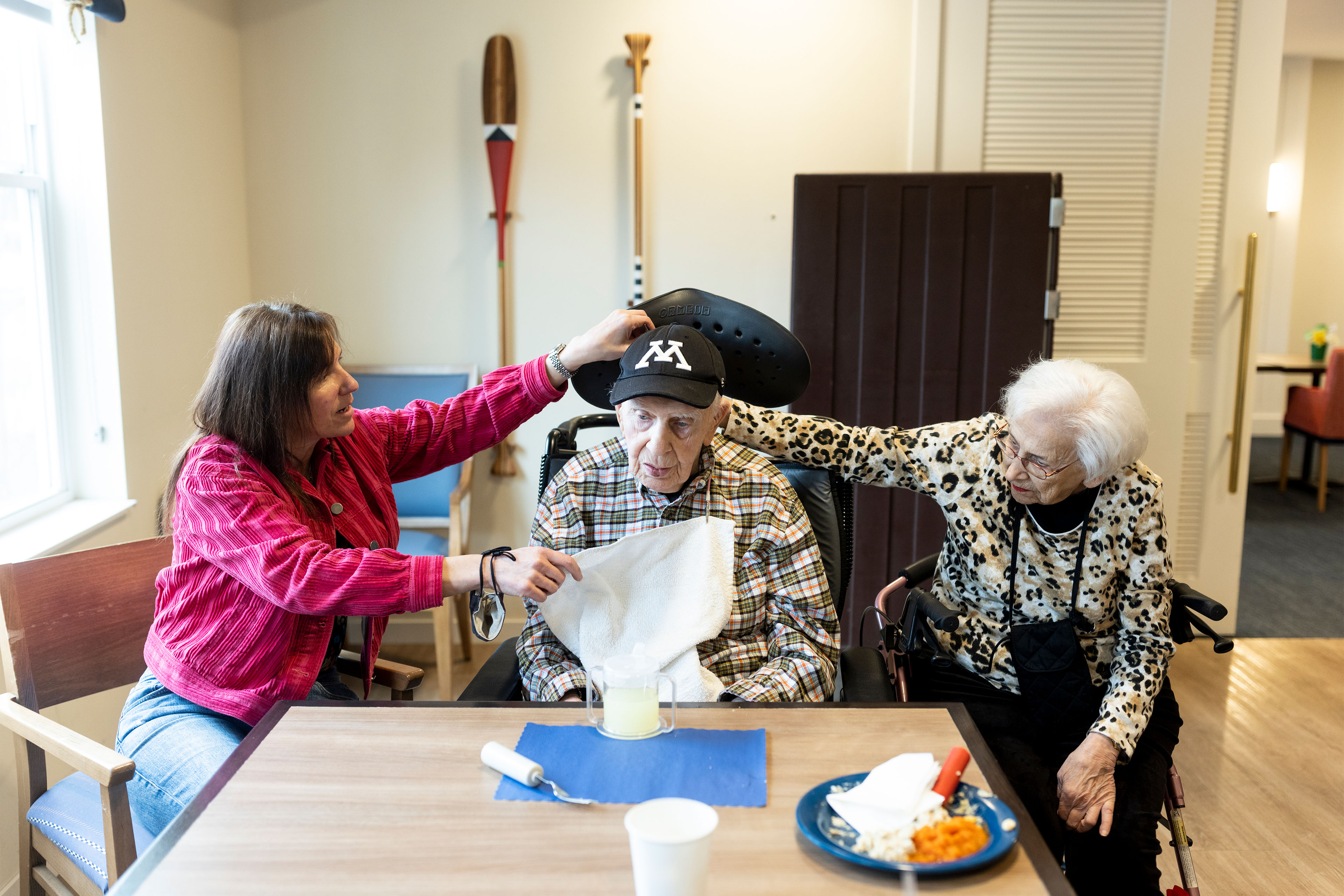Understanding Just How Helped Living Sustains Clients With Dementia Care Demands
Aided living facilities are progressively identified for their pivotal function in addressing the complicated care needs of patients with mental deterioration. By using a structured yet nurturing setting, these facilities not only advertise safety and security and well-being however also cultivate a feeling of freedom via personalized treatment plans.
Overview of Mental Deterioration Care
Mental deterioration care is progressively vital as the occurrence of dementia-related conditions increases amongst aging populations. The problem can differ significantly in its presentation, needing tailored care techniques to fulfill private demands.
Reliable dementia care includes a multidisciplinary strategy, integrating clinical, psychological, and social assistance. Healthcare professionals, caretakers, and member of the family need to team up to create a nurturing setting that advertises the health of individuals with dementia. Secret elements of dementia treatment consist of personalized treatment plans, cognitive stimulation therapies, and behavioral treatments intended at enhancing quality of life.
In addition, it is important to acknowledge the psychological and mental challenges encountered by both people and caregivers. Education and learning and training for caretakers play a pivotal role in fostering understanding and empathy, thereby boosting interactions with those impacted by dementia. As the need for dementia care proceeds to increase, the emphasis should continue to be on providing compassionate, person-centered care that respects the self-respect and preferences of individuals coping with this problem.
Role of Assisted Living Facilities
Helped living facilities play a crucial function in supplying treatment for individuals with dementia, providing a helpful environment that balances independence with the necessary assistance. These facilities are made to provide to the unique demands of residents, advertising a sense of community while guaranteeing security and well-being.
In an assisted living setup, trained employee offer 24/7 assistance, assisting with everyday activities such as showering, clothing, and medication management. This degree of treatment is vital for individuals with mental deterioration, that may fight with these jobs as a result of cognitive decline. Additionally, centers usually include memory-enhancing programs and social tasks tailored to stimulate cognitive performance and urge social interaction.
The physical atmosphere of assisted living facilities is likewise optimized for security, featuring protected entrances, well-lit pathways, and clear signage to help locals navigate their surroundings. These neighborhoods cultivate a sense of belonging, lowering the feelings of seclusion that individuals with dementia might experience.
Personalized Care Plans
To make sure that each resident receives the most proper treatment, personalized treatment strategies are important in nursing home for individuals with dementia. These strategies are customized to satisfy the one-of-a-kind requirements, choices, and obstacles encountered by each citizen, advertising their dignity and quality of life.
The development of a personalized care strategy typically starts with a comprehensive evaluation performed by medical care professionals. Assisted Living. This evaluation examines the person's cognitive capacities, physical health, emotional well-being, and social preferences. Input from family participants and the resident themselves is critical, as it offers beneficial understandings into their history, routines, and personal interests
Once the assessment is complete, a multidisciplinary team collaborates to produce a care plan that describes certain objectives and treatments. This might consist of medicine administration, daily living help, and behavior approaches customized to minimize anxiety or agitation.
Routine reviews and updates to the care plan ensure it remains relevant as the person's problem progresses. Memory Care. By prioritizing personalized care, assisted living facilities can improve the total health of residents with mental deterioration, cultivating a setting that respects their uniqueness while addressing their care needs effectively
Engaging Activities and Socialization
Involving activities and socializing play a crucial function in enhancing the lifestyle for homeowners with mental deterioration in nursing home. These activities are made to promote cognitive function, advertise emotional well-being, and foster links among homeowners. Organized programs, such as art therapy, songs sessions, and reminiscence treatment, provide possibilities for people to reveal themselves creatively while additionally causing favorable memories.
Socializing is just as crucial, as it battles feelings of isolation and loneliness that can come with mental deterioration. Team tasks, consisting of video games, team trips, and communal eating, urge interaction and aid citizens build helpful relationships with peers and caretakers. This feeling of community not just enriches their everyday experiences yet likewise adds to a more steady psychological atmosphere.
Additionally, involving activities can be customized to individual preferences and cognitive degrees, ensuring that each local can participate meaningfully. By producing an atmosphere that focuses on engagement and social interaction, aided living centers can dramatically improve citizens' total psychological health and wellness, cultivating a sense of function and belonging. Inevitably, these initiatives are vital components of thorough dementia treatment, substantially affecting homeowners' overall health and joy.
Benefits of Neighborhood Support

In addition, neighborhood support promotes social communication, which is crucial for cognitive and psychological health and wellness. Engaging with peers and joining group activities can enhance mood and urge reminiscence, contributing to a greater sense of belonging. This social involvement is necessary, as solitude and isolation can exacerbate cognitive decrease.

Final Thought
To conclude, helped living centers act as essential atmospheres for people with dementia, providing organized support that promotes both freedom and security. The execution of customized treatment strategies makes sure that each homeowner's special needs are fulfilled, while engaging activities promote social interaction and cognitive involvement. The sense of area within these facilities dramatically alleviates sensations of isolation, boosting general psychological wellness. Hence, assisted living plays an important function in enhancing the top quality of life for patients with dementia.
Comments on “Discover the advantages of Assisted Living as a senior care option.”